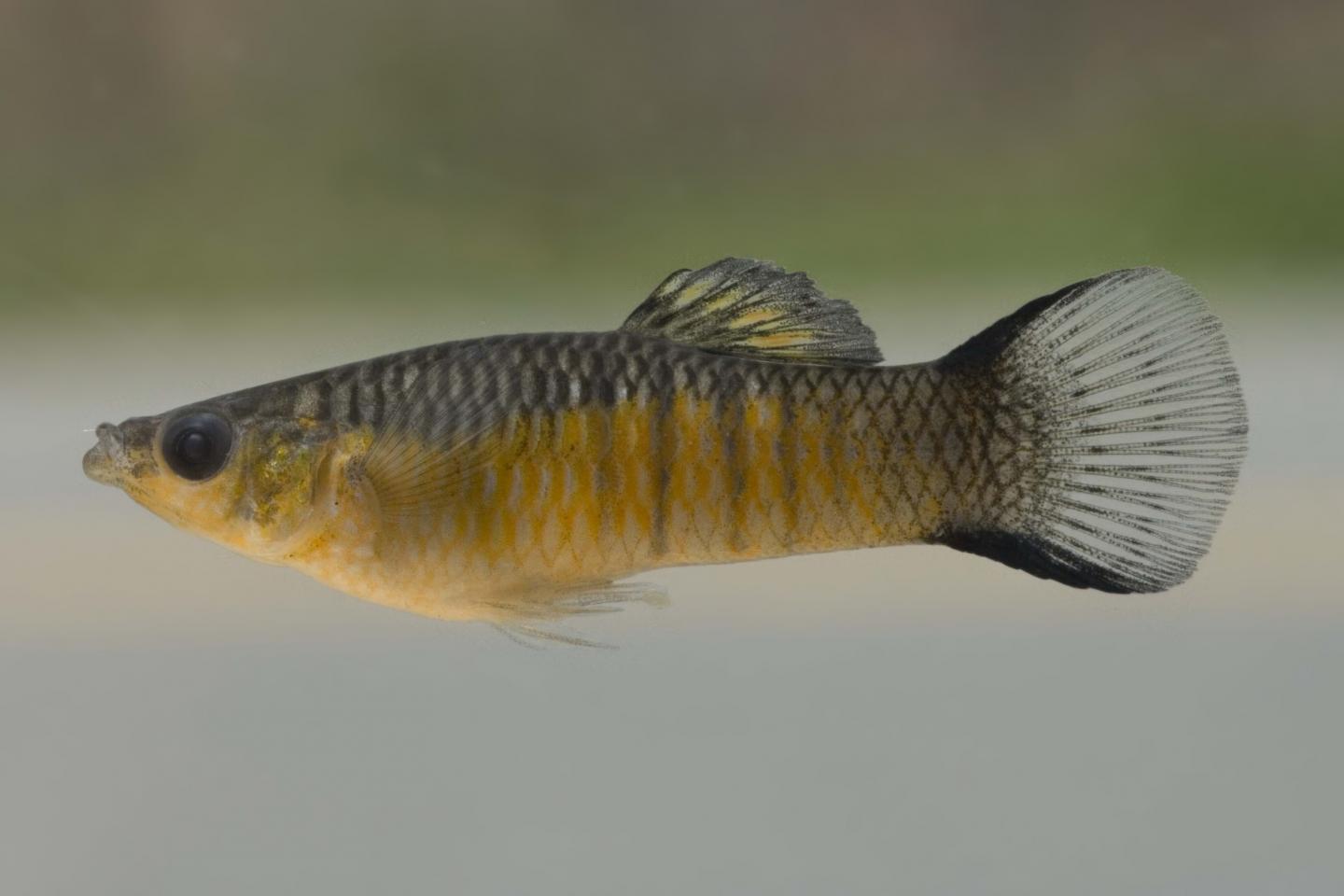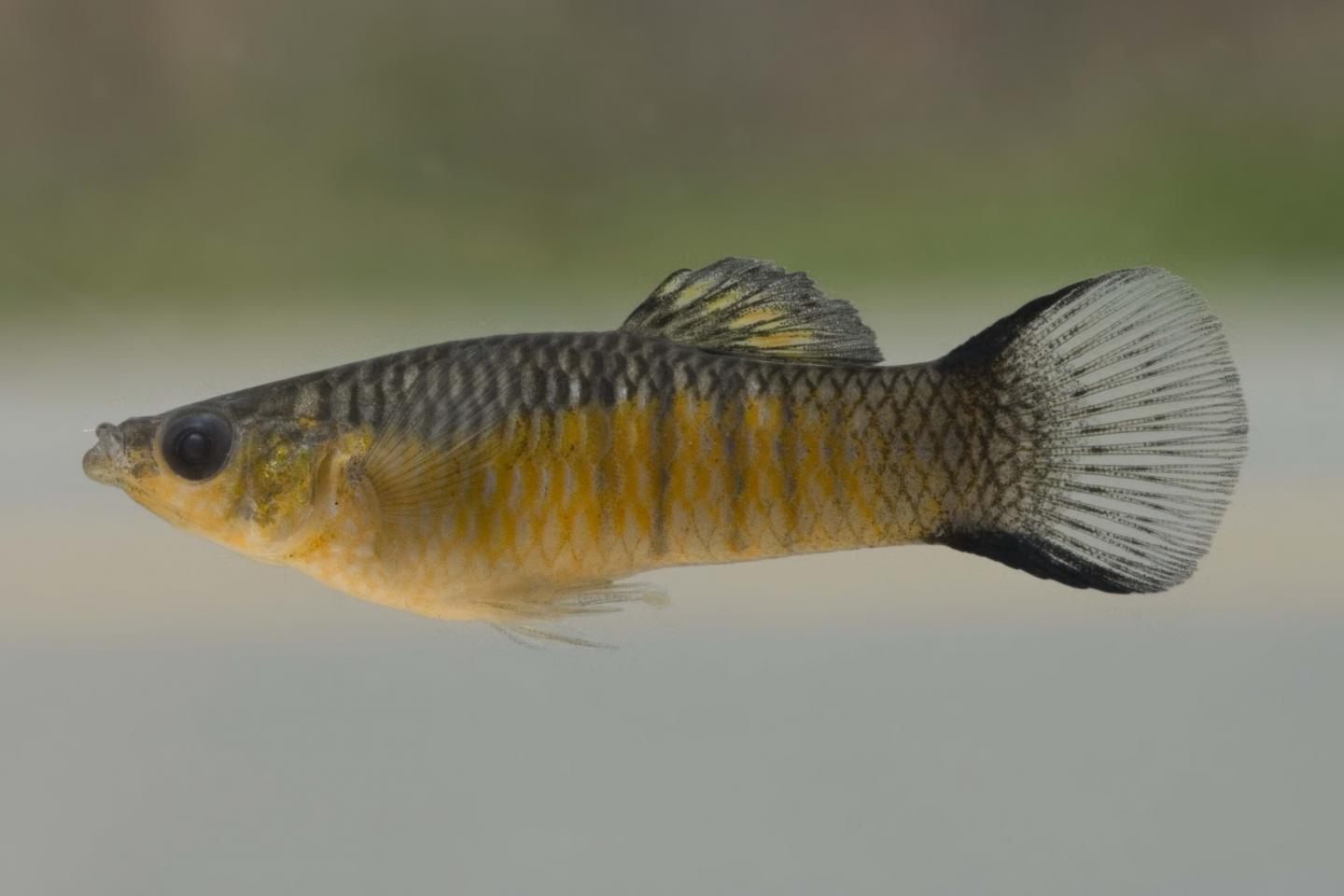
Credit: Marcelo Brito
While people tend to describe tropical oceanic islands as 'paradises on Earth' and associate them with calm beaches, transparent warm waters and marvellous landscapes, archipelagos are often the product of a fierce natural force – volcanoes which erupt at the bottom of the sea.
Because of their origin, these islands have never been connected to the mainland, thereby it is extremely difficult for species to cross the ocean and populate them.
One such species – the South American guppy (Poecilia vivipara) – is a small freshwater fish which looks nowhere equipped to cross the distance between the mainland and the Fernando de Noronha oceanic archipelago in Northeast Brazil.
Nevertheless, the research team of PhD student Waldir M. Berbel-Filho and his professor Dr. Sergio Lima from Universidade Federal do Rio Grande do Norte recorded the species from a local mangrove on the island. The question that immediately sprang to the minds of the scientists was: 'Where did the guppies come from and how did they get to Fernando de Noronha?'
To answer these questions, the scientists sequenced a gene of the guppies' DNA to analyze potential signatures of the island colonization left in the fish DNA. As a result, they concluded that the isolated population was in fact closely related to the fish inhabiting the closest continental drainages.
However, this evidence was not enough to explain how the species turned up on the island in the first place. Was it natural colonization, or rather human introduction?
The most likely scenario, according to the team, leads back to about 60 years ago when the American military had their WWII bases positioned at both Fernando de Noronha and Natal – the closest continental city. Indeed, the soldiers suggested to bring guppies to the island in an attempt to control mosquito population (in this region, guppies are commonly placed in water reservoirs to eat mosquito larvae).
On the other hand, natural dispersion cannot be completely excluded. The biologists remind that, apart for their exuberant colours and shapes, the guppies are well known for their capacity to resist to a wide range of environmental conditions. It could be that a set of circumstances occurring together, such as a favourable sea current, physiological adaptation and a bit of luck, might have brought the guppies to the archipelago.
"Regardless of their means of transportation," argue the authors, "this guppy population represents a valuable lesson on how small populations manage to colonize and thrive in isolated environments."
"Despite being visited by thousands of people every year, some of the most intriguing secrets of tropical islands may still be hidden in the DNA of their inhabitants," they conclude. "These 'paradises on Earth' are capable of simultaneously filling our hearts with beauty and our minds – with knowledge."
###
Original source:
Berbel-Filho WM, Barros-Neto LF, Dias RM, Mendes LF, Figueiredo CAA, Torres RA, Lima SMQ (2018) Poecilia vivipara Bloch & Schneider, 1801 (Cyprinodontiformes, Poeciliidae), a guppy in an oceanic archipelago: from where did it come? ZooKeys 746: 91-104. https://doi.org/10.3897/zookeys.746.20960
Media Contact
Waldir M. Berbel-Filho
[email protected]
44-074-010-68846
@Pensoft
http://www.pensoft.net
Related Journal Article
http://dx.doi.org/10.3897/zookeys.746.20960





